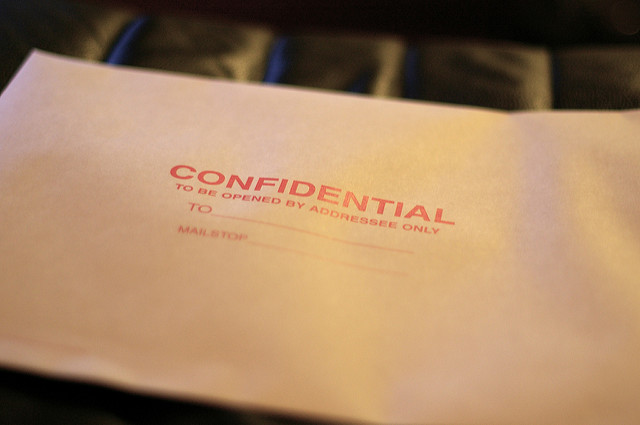Trade Secrets Are Being Federalized in the United States: A New Extension Of Jurisdiction
Written by: Bruce K. Packard
Original publication on May 15, 2016
Trade secret protection has now become a federal law right in the United States for the first time with the addition of the Defend Trades Secrets Act (the “DTSA”). The DTSA is both a criminal and a civil law that can be enforced in state or federal court. This is the first significant foray by the U.S. government into trade secret law, which historically was governed only by various state laws. Rather than create a single federal law, the DTSA leaves the local state laws intact and unchanged. The central provision of the DTSA reads:
An owner of a trade secret that is misappropriated may bring a civil action under this subsection if the trade secret is related to a product or service used in, or intended for use in, interstate or foreign commerce.
18 U.S.C. §1836(b).
Perhaps most importantly, the DTSA does not contain any territorial limits on its application—a true threat for hauling foreign entities into U.S. territorial courts to resolve business disputes.
What is a Trade Secret?
Trade secrets are very broadly defined under the DTSA, which is in keeping with most local state jurisdictions. Trade secrets include formulae, patterns, compilations, programs, devices, methods, techniques or processes. A trade secret has three parts: (1) information; (2) reasonable measures taken to protect the information; and (3) which derives independent economic value from not being generally known. Examples of trade secrets include, plans, designs, negative information, computer software, customer lists, non-public financial information, cost and pricing information, manufacturing information, confidential information about business opportunities, and certain personnel information. Rarely does one prevail on argument over what is a trade secret.
In an odd twist, the DTSA expressly states that it shall not be construed to be a law pertaining to intellectual property. Trade secrets are routinely, and correctly, considered to be intellectual property. What is the purpose of this provision? Here are several: First, it may directly impact whether a company has insurance coverage for an alleged claim of theft of trade secrets. Second, it may impact whether bankruptcy court trustees are allowed to reject a license of trade secrets under 11 U.S.C. § 365(n). Third, it may convert breach of contract claims (for intellectual property) into tort claims (under the DTSA. In the U.S, tort claims cannot generally be brought when a contract provision governs the relationship. An tort claims carry the potential for punitive damages.

What Is Misappropriation Of A Trade Secret?
The key legal battle is in determining what constitutes a “misappropriation” of a trade secret. The DTSA extensively defines misappropriation, but the essence of the claim is that, without consent, a person (or legal entity) obtains a trade secret through improper means; or discloses or uses a trade secret without knowing that it was obtained by improper means. “Improper means” includes theft, bribery, misrepresentation, breach of confidentiality, espionage, unauthorized computer access, or other means. Importantly, “misappropriation” excludes reverse engineering, independent derivation or other lawful means of acquisition.
Key Remedies
The DTSA provides for civil seizure of goods and property to prevent continuing misappropriation or exposure of trade secrets. The seizure can occur prior to a trial, during the trial or as part of a judgment. The statute also provides for compensatory damages; disgorgement of any unjust enrichment cause by use of the trade secret; and a reasonable royalty for the use of the secret if the misappropriation can’t be thwarted. But don’t forget----the key remedy is that a foreign entity can be forced to defend itself in a federal court in the United States.
Be Wary Of Electronic Discovery Costs
Every trade secret case involves some level of electronic discovery, known as electronically stored information (“ESI”). One of the biggest benefits (or burdens) of the DTSA is that the breadth and cost of discovery of retrieval of ESI is almost always much higher in federal court than in most state courts. A litigation hold letter to your client, requesting that all ESI be kept and not destroyed is not sufficient. Your counsel must get actively involved in ascertaining the available information, storage and retention protocol and supervision of production for relevant ESI. Simply put, federal courts require more depth and diligence in searching for ESI, and federal judges tend to enforce the ESI discovery rules much harsher. Good if you’re a plaintiff. Bad if you are not. Beware that the key battleground in a DTSA case will likely be over ESI—win the battle and you are much more likely to win the war.
Corporate Whistleblowers Will Have Immunity
The DTSA contains very strong protection for whistleblowers by providing immunity when disclosing trade secrets to the government as part of an investigation. The employer cannot threaten the employee with counterclaims based on even legitimate concerns regarding disclosure of trade secrets to the government. Furthermore, the government has no obligation to inform the employer that it has received a complaint or the trade secrets. There are some specific procedures, easily complied with, that the employee must follow to obtain whistleblower protection. Most importantly, all employers must notify their employees of these rights under the DTSA.

Where Do You Go From Here?
New legislation always creates uncertainty. The DTSA will need years to be sorted out, but in the interim it is important to discuss any misappropriation claim with counsel that is familiar with U.S. federal courts. The DTSA is not for the faint of heart or the uninitiated. If you, or your local counsel, would like to discuss the matter do not hesitate to call.
Bruce K. Packard
Riney Packard, PLLC
Dallas, Texas
bpackard@rineypackard.com
Phone: 214-461-1203
Fax: 214-461-1210
